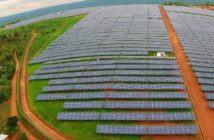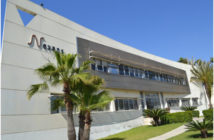On Thursday July 5, GMF Brussels hosted a roundtable discussion on the potential for the development of renewable energy in North Africa and the potential impact it could have on the region and Europe’s energy mix. The event highlighted the technical feasibility of proposed projects like the “Desertec” idea to generate large-scale power in the Sahara desert for local use and export to Europe, the possible sources of capital and conditions of investment, the necessary political and regulatory frameworks, and the potential environmental and social implications, both for the region and for Europe.
Paul van Son, CEO of the Desertec Industrial Initiative, presented the Desertec idea (2050 Desert Power full report and executive summary), which he described not as a singular project but rather as an opportunity to create markets in the wider Middle East/North Africa (MENA) region. He also pointed out the early importance of wind energy, which would initially account for more than half of the energy being exported to Europe. Michael Köhler, head of cabinet for EU Energy Commissioner Günther Oettinger, described the current gap between the costs of generating electricity from renewable sources in North Africa and the EU wholesale price for electricity, and possible ways to bridge that gap. He called for increased cooperation with the EU’s North African neighbors and encouraged the view to see them not as being on the border, but rather as an integral part of the European energy market. Lettemieke Mulder, vice president for global sustainability at First Solar, highlighted the challenges for photovoltaic solar producers and developers in the current market of falling subsidies and uncertainty. She noted the potential for generating power from renewable sources in the North African countries themselves, and making this viable before exporting to Europe. Stephan Singer, director for global energy at WWF, pointed out two opposing mantras in the current European energy policy discussion, one calling for local diversified energy sources, the other one focusing on large-scale integrated solutions; Europe will need to embrace both of them together. He underlined the crucial importance of grid development and warned the audience not to give up nature protection in order to protect the climate. Miriam Maes, GMF’s newly appointed non-resident fellow for energy, moderated the discussion. The speakers were: Paul van Son, CEO of the Desertec Industrial Initiative; Michael Köhler, head of Günther Oettinger’s cabinet; Lettemieke Mulder, vice president global sustainability at First Solar; and Stephan Singer, director for global energy policy at WWF.
The subsequent discussion addressed a variety of topics, including the proposal to establish an energy charter or similar arrangement between the EU and the MENA region with the aim of ensuring a stable regulatory and investment regime to encourage the development of new energy sources from the region for export to Europe. Setting up trade agreements would not just improve the cooperation between the EU and the MENA region but also alleviate current conflicts amongst countries in this area. Michael Köhler pointed to the distorted situation that solar energy projects in North African countries are up to 35 percent more efficient than equivalent projects in Europe but face higher costs due to the risk premium imposed by political and structural challenges. He outlined some elements that would need to be included in a proposed package for these countries, namely employment opportunities, vocational trainings, support in the regulatory process and infrastructural development. For the particular challenge of energy storage, several speakers mentioned a broad set of solutions, including concentrated solar power, pumped storage hydro power stations, synthesized gas and enhanced interconnectivity in the power grids.
Source : GMF
Genesis Morocco : http://genesismorocco.blogspot.com
from Genesis Morocco http://genesismorocco.blogspot.com/







